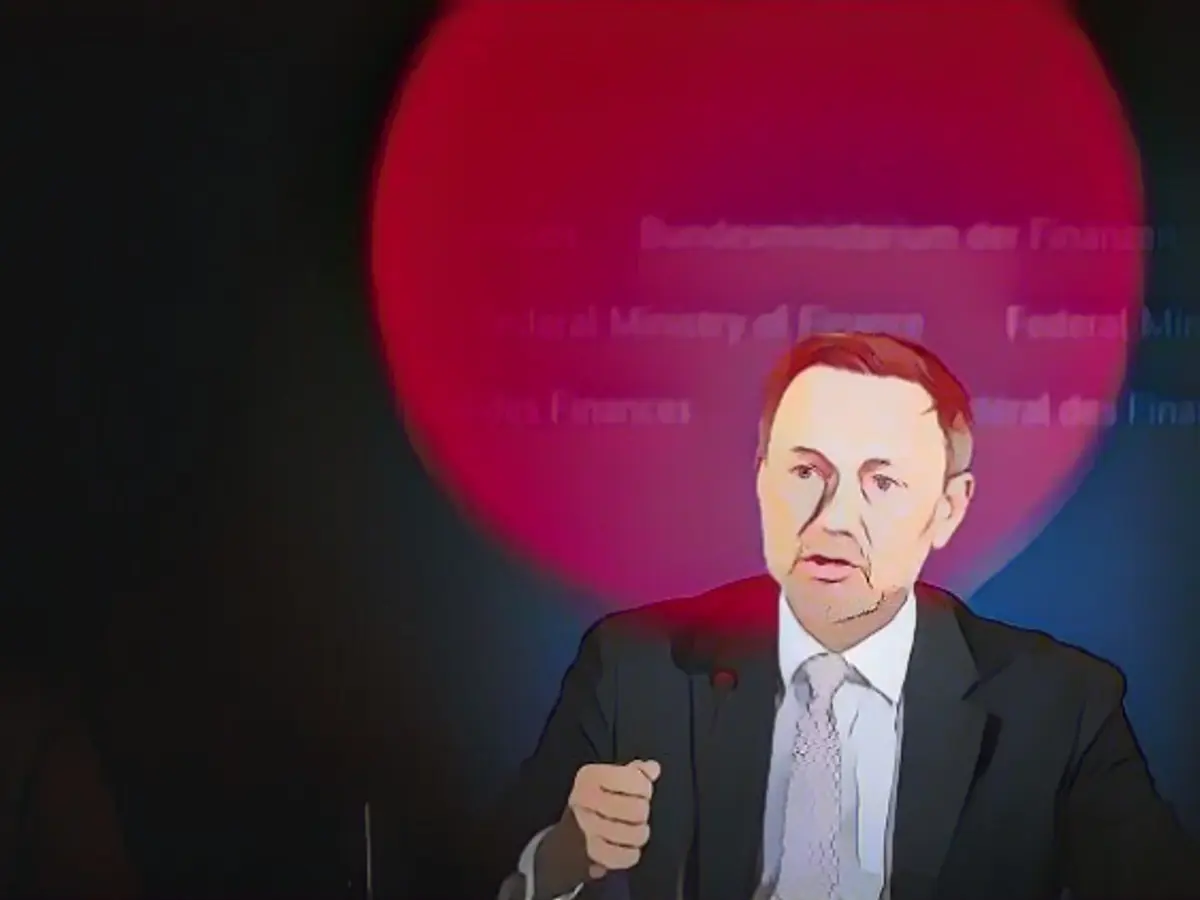Where there is a will, there are 60 billion
The budget freeze may be a signal that pleases the finance minister. But it will not conjure up the billions missing after the Karlsruhe ruling. To achieve this, the traffic light parties must now jump over their shadows.
60 billion sounds like an enormous amount, and it is. In euros. But as a political problem, as a potential test of a complicated coalition, the 60 billion euros must be measured in other terms. And then it no longer looks as terribly catastrophic and close to bankruptcy as the governing parties and the opposition - each for specific, useful reasons - want to paint it.
With its ruling on the so-called Climate and Transformation Fund (KTF), the Federal Constitutional Court has removed the possibility of incurring 60 billion euros in debt over four years (2024 to 2027). No more and no less. This means that less than a third of the planned total volume of 212 billion euros in the KTF is missing. The 60 billion is also spread over four years, and the annual tranches are probably slightly larger at the beginning than towards the end. In other words, the Constitutional Court has de facto removed between 15 and 20 billion euros in potential loan financing from the federal government's spending plans for the year. That is between three and four percent of the total volume of the federal budget.
And that should not be feasible? Seriously?
The fact that the Finance Minister has imposed the first federal budget freeze since 1979 is a moment of pseudo-masculine behavior. It is probably intended as a message to the other ministers: Schmalhans rules now. Further spending plans only across my desk.
But the 15 to 20 billion euros cannot be raised in this way. Now we will see what Mr. Scholz, Mr. Lindner and Mr. Habeck are made of. If each of the three gentlemen were prepared to let their own party jump over their own shadow for once, it would certainly be feasible. The SPD is willing to make a few concessions to the no less than 112 billion euro pension subsidy. This could, for example, affect the "pension at 63", which is universally recognized as nonsensical. The Greens are willing to accept that the less effective climate protection projects will be stretched out and wait a little. This could, for example, affect some special features of house insulation or solar subsidies. And the FDP accepts that certain tax concessions, which are, after all, state tax waivers, will be phased out. This could affect tax breaks for company cars or aviation fuel.
It would certainly be fair between the generations: it is the younger generation that will have to pay off the debts incurred by the older generation in the present. To a certain extent, that's fine. But the German government wanted to go beyond this framework, and fortunately it was forbidden to do so. That doesn't mean that Germany is bankrupt. The federal and state governments just need to return to a normal state of public budget management. This expressly does not mean that the state must manage without any debt at all or that it must not resort to massive borrowing in the event of genuine emergencies. However, the ruling of the Constitutional Court ensures that debt is no longer so easily available as the cement of this and all future coalitions. "There's a fair in heaven" and the younger generation pays the bill - that used to be the case.
- Despite Christian Lindner being satisfied with the budget freeze, the traffic light coalition needs to make significant compromises to find the missing 60 billion euros following the Federal Constitutional Court's ruling on the Climate and Transformation Fund.
- Olaf Scholz, Robert Habeck, and Christian Lindner each need to encourage their parties to make sacrifices to bridge the funding gap, as the 60 billion euros required is just a fraction of the total federal budget, around 3-4%.
- The Federal Constitutional Court's decision to restrict loan financing by removing 15-20 billion euros from the federal government's spending plans for the year challenges the governing parties to demonstrate their commitment to finding a solution within the constitutional framework, thus avoiding the perception that Germany is on the brink of bankruptcy.
Source: www.ntv.de








